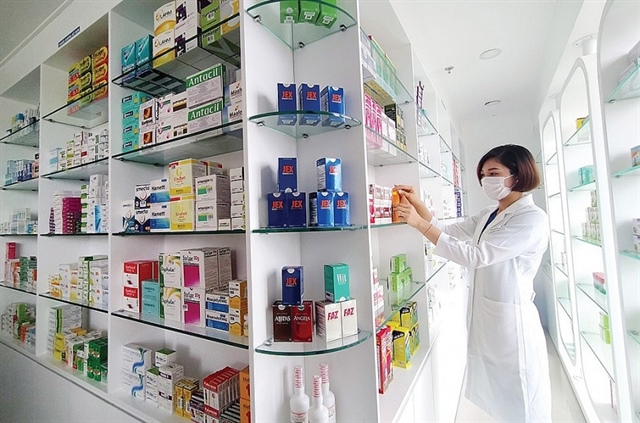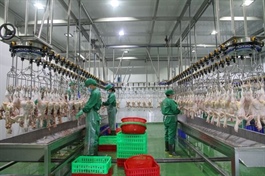Fresh visions set for private pharma firms
Fresh visions set for private pharma firms
Domestic private pharma companies are expecting robust industry legal changes to facilitate future initiatives.

Policy changes could make the business environment more transparent for pharmaceutical companies, Photo: Le Toan |
Nguyen Trung Viet, chairman of the board at HDPharma, expects that new policies will make all procedures related to management agencies quicker, save time, and simplify processes, as ministries and agencies work on action plans to implement the nation’s private sector vision.
Speaking to VIR, Viet said the new vision will have a profound impact on the private economic sector, and the pharmaceutical industry in particular.
“For the resolution to be most effective, management agencies need specific policies,” Viet said. “Good policies, combined with the efforts of enterprises in the pharmaceutical industry, will materialise the strategy to build a modern domestic pharmaceutical industry, produce high-quality pharmaceutical products of global standards at costs affordable for Vietnamese patients, gradually replace imported drugs, and move towards export.”
Many other companies – including Binh Dinh Pharmaceutical and Medical Equipment JSC (Bidiphar) and Long Chau – see the Politburo’s Resolution No.68/NQ-TW on private sector development, issued in May, as an important boost to affirm their future strategies.
Tran Thi Huyen, head of the legal division at FPT Retail, the operator of Long Chau, said that the resolution creates a clear legal corridor, promotes innovation, and encourages healthy competition – all of which are key factors for the development of private firms.
“The resolution has a positive impact on three aspects for Long Chau,” she said. “These are long-term investment, especially in expanding the pharmacy system to serve people in remote areas; and the acceleration of digital transformation to improve customer experience and strengthen the voice of private enterprises in contributing to industry policy.”
Nguyen Thanh Tung, head of marketing at Bidiphar, added that the resolution emphasises the protection of property rights and enterprise freedom, while unlocking resources such as land, credit, technology, and market access for the private sector.
“The resolution will help us access resources more easily, reduce barriers in administrative procedures, and create new advantages for investment in production, development, research, and innovation. This is the foundation for us to consolidate our position, expand market share, and enhance competitiveness in both the domestic and international pharmaceutical markets,” said Tung.
While placing high hopes on new breakthroughs, industry players expect policy changes to make the business environment more stable, transparent, and favourable. They agreed that for the private economy to leapfrog, policies need to be innovative, practical, and consistent.
“The industry should increase tax incentives, support businesses in research and development, and provide exemptions and reductions in fees and charges to lower operating costs – while enhancing administrative reform by shifting from pre-inspection to post-inspection,” Tung added. “We hope to receive supportive policies for investment in clinical research and new product development, to improve production capacity and meet international standards.”
According to Bidiphar, the amended Law on Pharmacy will bring many positive changes to the domestic pharmaceutical industry.
Specifically, the law prioritises the development of the domestic pharmaceutical industry by limiting imported drugs to certain categories where enough domestic manufacturers meet EU-GMP quality standards. Currently, Bidiphar owns the largest cancer treatment drug factory in Vietnam, and is in the process of building the first factories of EU-GMP standards in the central province of Binh Dinh.
In addition, the law simplifies drug registration procedures, reducing costs and resource requirements. This will help shorten the time needed to launch new products for the treatment needs of medical facilities and patients.
It also creates a legal framework for pharmacy chains and e-commerce in the pharmaceutical industry. Bidiphar now aims to digitally transform both internally and in business operations, which will help the company expand its market and increase revenue.
To tap into future opportunities driven by Resolution 68 and anticipated policy changes, Bidiphar is investing in upgrading production lines to meet EU-GMP standards, strengthening research and development of new products, optimising drug registration and distribution processes, boosting e-commerce, and expanding its distribution network.
Similarly, HDPharma and Long Chau also expect to invest for the long term. HDPharma plans to build multiple production lines that meet EU-GMP standards. It aims to complete the construction of its factory in the Cam Thuong industrial cluster in the northern province of Hai Duong and negotiate with major multinational pharmaceutical corporations to cooperate in production and business activities.
- 09:08 25/06/2025























